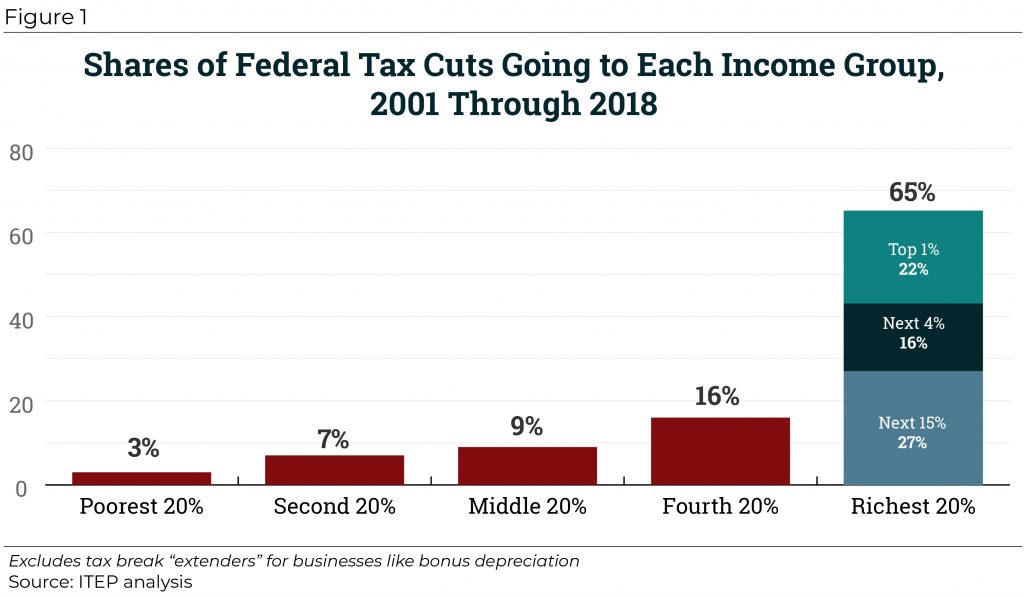Democratic presidential candidates are committed to progressive tax policy. There are proposals to tax highly concentrated wealth, raise rates at the top, tax capital gains the same as other income and other ideas. In a recent blog, ITEP federal policy director Steve Wamhoff wrote about some of the proposals.
This new attention to tax policy is great news because our tax system could do much more to raise adequate revenue for America’s needs, and to ensure that the rewards of our economy are more widely distributed, rather than funneled almost entirely to those who are already extremely wealthy.
It’s also not surprising, given that Americans have been telling pollsters for years that they want higher taxes on the wealthy and on corporations. What’s remarkable is that it took this long for politicians to catch up and that many still have not.
Nearly a decade ago at the end of 2010, the Bush tax cuts of 2001 and 2003 were set to expire. Public opinion was squarely on the side of lawmakers who wanted to allow the cuts to end for taxpayers earning more than $250,000 per year and preserve reduced tax rates for lower-income families, but GOP leaders dug in their heels, insisting on keeping tax cuts for wealthier Americans or eliminating them for everyone. The Obama Administration acquiesced, and the Bush tax cuts lasted for two more years. In 2012, when Congress again had to vote on whether to extend the Bush tax cuts, lawmakers agreed to keep the cuts on individual income up to $400,000 and on joint-filer income up to $450,000.
Today the conversation is very different. Presidential candidates and some elected officials are finally talking about bold tax policy ideas that would increase taxes and raise revenue.
This is a dramatic shift from when a radical, right-wing narrative dominated the public debate. Republicans redefined “fiscal responsibility” as fewer taxes and less government, peddled supply-side economic theories, and denied the clear evidence that tax cuts were adding to our nation’s deficits. They continue to blame government spending, rather than misguided tax policy, for the nation’s fiscal challenges. But there is no evidence that the public ever bought into this harmful, erroneous narrative.
Just after President Bush signed his major 2003 tax cut into law, Gallup found that just 34 percent of those polled believed that the legislation would help their own family. In December 2017, just as President Trump and congressional Republicans were finalizing the TCJA, most people (57 percent) did not believe the tax cuts would help their family and just as many disapproved of the measure.
While public opinion about taxes has been consistent, some lawmakers and reporters took public objections to Republican tax policy much more seriously when the Trump Administration and its congressional allies began making a case for the next big tax cut.
And that concern was justified: A 2018 ITEP report that examined tax cuts during the Bush, Obama and Trump administrations found that from 2001 through 2018, significant federal tax changes reduced revenue by $5.1 trillion, with nearly two-thirds of that flowing to the richest fifth of Americans. If the status quo remains, the report projects the last 20 years of tax cuts will have cumulatively reduced federal revenue by $10.6 trillion by the end of 2025, making it impossible to maintain our infrastructure, educate our children, and address the consequences of climate change. And this estimate doesn’t include all corporate tax cuts. The next couple of years will determine whether Washington will heed public sentiment and reverse course, or whether it will continue business as usual.





